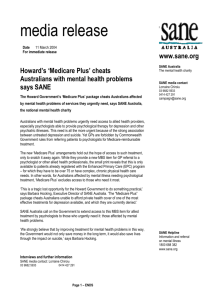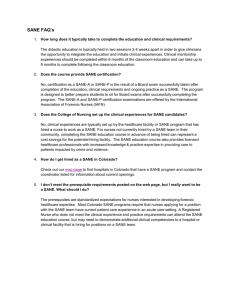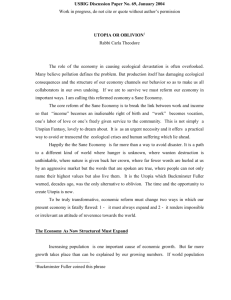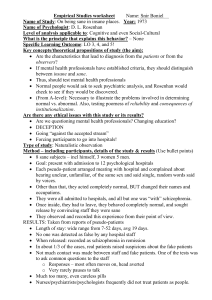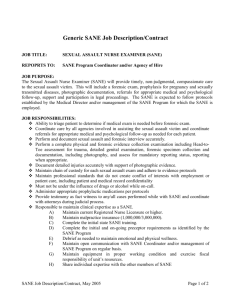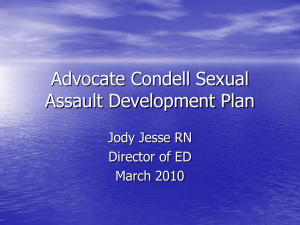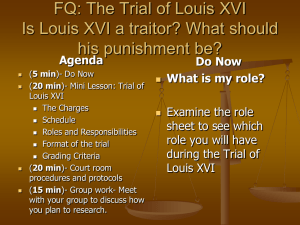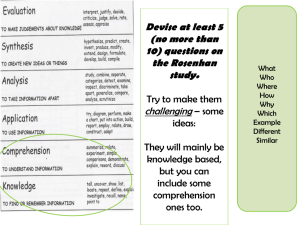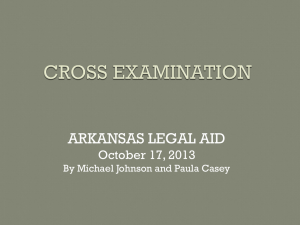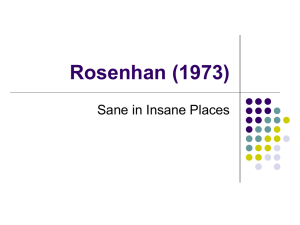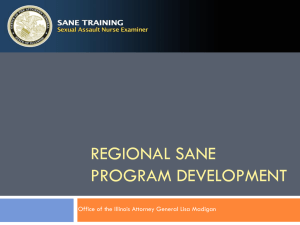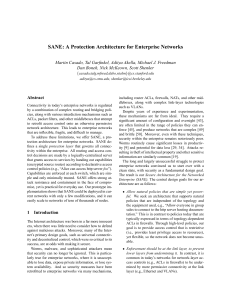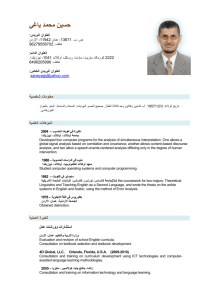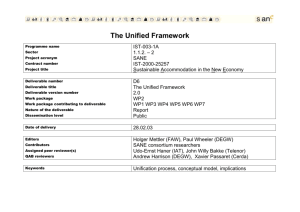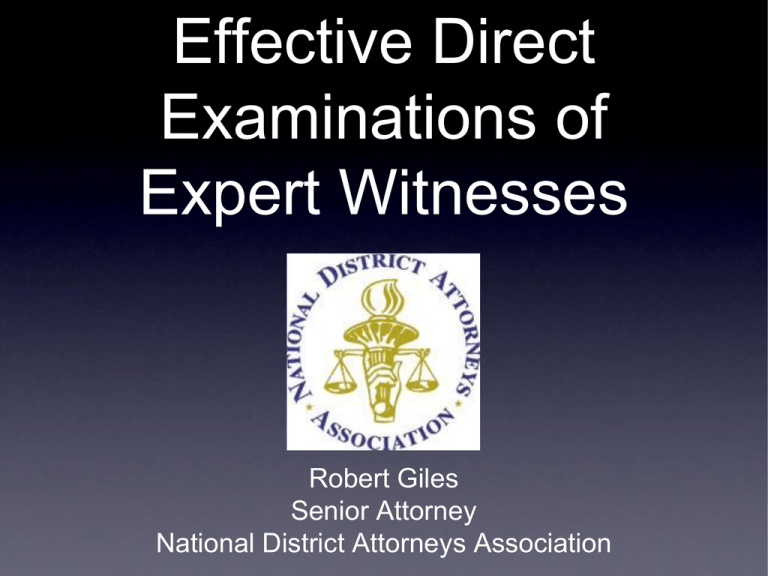
Effective Direct
Examinations of
Expert Witnesses
Robert Giles
Senior Attorney
National District Attorneys Association
What Type of
Witness?
Lay Witnesses:
- testifies as to what the witness saw, heard,
felt, smelled etc.
Expert Witnesses:
- renders an opinion or gives the jury
information that helps them evaluate the
evidence
Combination Witnesses:
- lay witness with personal knowledge of case
and qualifications as expert witness
Expert Witnesses:
Types:
•
•
•
•
•
•
Responding officers
Investigators
Forensic Interviewer
•
•
•
Medical personnel
Psychologists
Social workers
•
•
Computer Forensic Examiner
CSAAS
Common characteristics of
children who allege sexual
abuse
Handwriting
Accepted massage techniques
When Can You Call
an
Expert
• Bond hearing
• Grand Jury/Preliminary Hearing
• Pre-Trial Motions
• Victim Competence
• Trial
• Sentencing
• Civil Commitment of Sexually Dangerous
Defendants
Purpose of Expert
Witness:
• FRE 704
• Testimony in the form of an opinion or
inference otherwise admissible is not
objectionable because it embraces an
ultimate issue to be decided by the
trier of fact
Frye Test
• Expert testimony is admissible if the
subject matter has gained “general
acceptance in the particular field in
which it belongs.”
•
Daubert/Rule 702
test
“If scientific, technical, or other specialized
knowledge will assist the trier of fact to
understand the evidence or to determine a
fact in issue, a witness qualified as an
expert by knowledge, skill, experience,
training, or education may testify thereto in
the form of an opinion or otherwise, if (1) the
testimony is based upon sufficient facts or
data, (2) the testimony is the product of
reliable principles and methods, and (3) the
witness has applied the principles and
methods reliably to the facts of the case. “
Virginia Rules
• An expert’s testimony is admissible not
only when scientific knowledge is
required but when experience and
observation . . . give the expert
knowledge of a subject beyond that of
person’s of common intellegence and
ordinary experience
Velazquez v. Virginia, 263 Va. 95, 103 (2002); see also
Kilby v. Virginia, 52 Va. App 397 (2008)
What is Key?
Key to Expert
Witness?
• Preparation
• Preparation
• Preparation
Preparation:
• Meet with expert ahead of time
Preparation:
• Go through their resume
Preparation:
• Go through their resume
• Experience
Preparation:
• Go through their resume
• Experience
• Education
Preparation:
• Go through their resume
• Experience
• Education
• Training
Preparation:
• Go through their resume
• Experience
• Education
• Training
• Courtroom Attire/Actions
Pre-trial Meetings
• As early as possible
• More than once
• Phone meetings as last resort
What They Want To Know;
But Are Afraid To Ask
• Who do they look at?
• Can they review notes?
• Objections
• Out of Element:
• (think how you feel at doctor’s office)
Preparing for
Testimony
• Have direct examination questions
ready
• Prepare for areas of cross examination
• Stay within field
Expert Prep in Child
Abuse Cases:
• What part of case do you use?
• Ready made experts (investigators,
social workers, forensic interviewers,
doctor, SANE) who were part of
investigation
• specific to facts of case: examples
Expert Expenses
• Sticky situations
• Office has necessary funds
• many times money is not going directly
to expert but to underlying hospital
Nationwide Trends
Experts Called in Prosecutions:
• Forensic Interviewer
• Medical doctor or SANE
• Child psychologist
• Child sex abuse accommodation
syndrome
• Common characteristics of children who
allege sexual abuse
Common Defenses
• Anti-AHT
• Profile evidence
• false confession
• police ineptitude
• scientific attack on evidence
• lack of exhaustive testing
Be Prepared for
Defense Expert
• Get their opinion early
• discoverable
• discuss with your expert
• Can you defeat/deflect some of report
in direct examination
Preparation:
• Prepare to defend your expert
• review/look-up their history
• Interview the defense expert
• prior testimony: prosecution or defense
• how many times?
Moments to Cherish:
• Forensic Interviewer (also police
investigator or CAC)
• Expert for Prosecution:
• “why have you never testified for
defense?”
Eye for an Eye?
• If the defense calls an expert does the
prosecution have to call one to rebut
them?
Common Pitfalls
• Non-medical evidence argument by
defense
• Putting on medical to demonstrate why
evidence might not be there...
Expert Topics:
Child Sex Abuse
•
•
•
•
•
•
Delayed/reluctant
disclosure
recantation
piecemeal disclosure
disclosure process
memory and
suggestibility
compliant victim
•
•
•
•
PTSD
Cultural factors
lack of physical evidence
developmental/cognitive abilities
Child Sexual Abuse
Accommodation Syndrome
•Pattern of five behavioral characteristics
often observed in child victims of sexual
abuse:
–Secrecy
–Helplessness
–Accommodation
–Delayed disclosure
–Recantation
Roland Summit (1983)
CSAAS
•Children do not necessarily report abuse
right after it happens
•Relationship between child and
perpetrator is parent/caretaker-child
•Opts not to report for fear of hurting other
parent, sending perp. to jail, or not being
believed
•Once child feels distance from the
offender, child may disclose the matter
•Counter intuitive actions – victim returns
Limitations on
Expert’s Opinions
•
•
•
Witness lying or telling
the truth
child’s behaviors are
diagnostic of abuse
ultimate issue of guilt
Defense Goals With
Your Expert
•
•
Secure Admissions
Make your expert look:
➡ ill- prepared
➡ argumentative
➡ out of touch
Defense Goals With
Your Expert:
•
•
•
Time line, manner of
injury in child abuse
cases
Undermine opinion
create hostility through
demeanor on crossexamination
Areas of Cross
•
•
•
•
•
Expertise
Conclusion
Basis of conclusion
sources of facts
age of information
Areas of Cross: Bias
•
•
•
Fees:
breakdown of fees
number of times
testifying
Areas of Cross Bias:
Choosing Your
Expert:
•
Expertise with
particular issue in
case:
•
•
AHT in poisoning
case?
Age of Information that
forms basis of opinion
Choosing Your
Expert:
•
•
•
Is experience in field
limited?
Has expert dealt
primarily with victims
or defendants?
theoretical research or
first-hand clinical basis
Choosing Your
Expert:
• Has expert kept current in
the field
• Jury acceptance?
• Are they approachable
and reachable?
• If stuck, call us...NDAA
• Lexis/Westlaw great
resources to background
and credentials...
Trial Decisions:
Demonstrative
Evidence
• Use Often
• Be creative
• Jury studies
• Prepare with experts
• Motions in Limine
Defense Stipulations
•
Never a good idea to
agree to stipulation
Building Foundation:
• Introduce Expert
• Background generally
• Experience and training generally
• Background in specific subject matter
• Experience and training in specific
subject matter
Building Foundation
• Professional memberships
• Publications
• Achievements in field
• Number of
examinations/investigations/interviews
• Number of times testifying about
subject matter
• not necessarily as an “expert”
Offer as Expert:
• Be specific
• Be descriptive
• Don’t overreach
Example:
Direct of SANE
(1) Name
(2) Occupation?
(3) Where employed?
(4) How long?
(5) Degrees?
(6) From where?
Example:
Direct of SANE
(7) Where and when did you obtain these
degrees?
(8) Where in (insert name of hospital) do
you work?
(9) Do you have a specific area within
medicine where you practice?
Example:
Direct of SANE
(10) What is SANE?
(11) Does that require additional training?
(12) What is the training?
(13) How long?
(14) Recurring training?
Example:
Direct
of have
SANE
(15) How
many exams
you
conducted?
(16) How many exams have you
observed?
(17) How many years as a SANE?
(18) Have you previously testified
regarding SANE examinations?
(19) How many times have you previously
testified?
Example:
Direct of SANE
(20) Previously, have you been qualified as an
expert in the medical field of SANE?
(21) Which state?
(22) Which jurisdiction?
(23) How many times?
★ Offer as an expert witness qualified to render
opinion testimony in the field of SANE
Example:
Direct of SANE
Transition
(24) Like to turn your attention to this
case; please describe physical
examination in detail.
(25) First how did it begin?
(26) What is a medical history?
(27)Who was present?
(28) Where did this take place
Example:
Direct of SANE
(29) What did you say to (name of vic) and
what did (name of vic) say to you?
(30) What was demeanor of (NOV) during
this portion of exam?
(31) While you were taking medical history
did (NOV) demeanor change?
(32) How?
Example:
Direct of SANE
(29) Following the medical history, what
happened next?
(30) Details, details, details...
(31) What is a sex assault examination
kit?
(32) How did you collect evidence for it?
(33) Once you collected evidence what did
you do with it?
Example:
Direct of SANE
(34) Showing you what is marked as
People’s Exhibit # ?
(35) Do you recognize?
(36) What is it?
Example:
Direct of SANE
(37) Turning to the physical examination,
what if anything did the exam reveal?
(38) Details, details, details...
(39) Use demonstrative exhibits...
Example:
Direct of SANE
(40) From these finding from your
examination and your experience and
training, were you able to form an
opinion to reasonable degree of
medical certainty the most likely cause
of these injuries?
Example:
Direct of SANE
(41) Lack of Findings?
(42) Explain normal is normal
Questions???
Robert Giles
Senior Attorney
NDAA’s National Center
for Prosecution of Child
Abuse
(703)519-1656
rgiles@ndaa.org

